I've stucked on a simple concept(I guess), basically I have two ViewControllers on Storyboard also I have 2 classes, ViewController and ViewController2:
I Have a Label whit a default value (0), and when I click on button I want to change the value for this variable to 10, and then I click on the button "Show" and I print this variable, I'm successfully changing the Label and printing the new Value.
The real problem is when I want to get the new variable value from another view, even after I change the value if I try to print the variable on second view the variable always return de default value(0)
ViewController
import UIKit
class ViewController: UIViewController {
var variable = "0"
@IBOutlet var defaultLabel: UILabel!
@IBOutlet var label1Label: UILabel!
@IBAction func setValue(sender: AnyObject) {
setValue()
}
@IBAction func getValue(sender: AnyObject) {
getValue()
}
override func viewDidLoad() {
super.viewDidLoad()
}
func setValue(){
variable = "10"
defaultLabel.text = variable
}
func getValue(){
print(variable)
}
override func didReceiveMemoryWarning() {
super.didReceiveMemoryWarning()
}
}
ViewController2
import UIKit
class ViewController2: UIViewController {
@IBOutlet var label2Label: UILabel!
override func viewDidLoad() {
super.viewDidLoad()
}
@IBAction func show(sender: AnyObject) {
print(ViewController().getValue())
}
override func didReceiveMemoryWarning() {
super.didReceiveMemoryWarning()
}
}
I've found this post:
Access variable in different class - Swift
And I really think this is the way that I will find my solution but I really don't understand how to call the variable on ViewController2.
Thanks.
